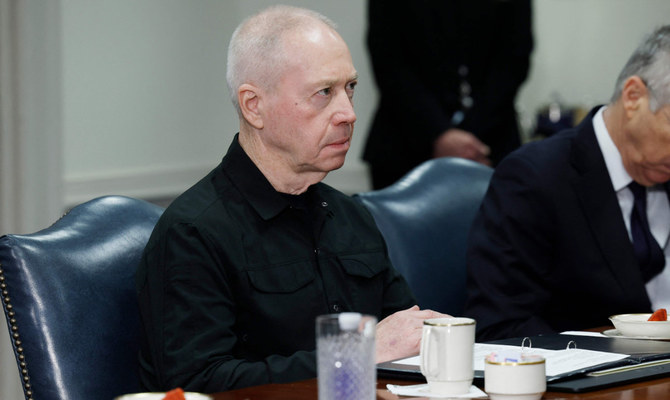
Biden said on Friday he thought Israel had not yet concluded how to respond to Iran and added that he would think about alternatives to striking Iranian oil fields if he were in Israel’s shoes
WASHINGTON: Israeli Defense Minister Yoav Gallant has canceled a Wednesday visit to the Pentagon, the Pentagon said, as Israeli media reported Prime Minister Benjamin Netanyahu wanted first to speak with US President Joe Biden.
The surprise cancelation on Tuesday comes amid soaring tensions between Israel and Iran as Israel weighs options to respond to Tehran’s missile attack last week, its second this year against Israel.
The Pentagon declined to say why Gallant canceled his visit, and referred reporters to Israel’s ministry of defense. Offices for Netanyahu and Gallant did not immediately respond to a request for comment. “We were just informed that Minister Gallant will be postponing his trip to Washington,” Pentagon spokesperson Sabrina Singh told a news briefing. Israel’s Ynet news outlet reported that Gallant had hoped his US visit would strengthen coordination on Iran but hours before departure, Netanyahu set two preconditions: the call with Biden and cabinet approval of the response to Iran.
The White House referred questions about the Gallant visit to the Israeli government. Biden and his aides have spoken of a possible call with Netanyahu since the end of September. But the White House did not immediately respond to a query on whether such a call had now been scheduled.
Biden said on Friday he thought Israel had not yet concluded how to respond to Iran and added that he would think about alternatives to striking Iranian oil fields if he were in Israel’s shoes.
Iran on Tuesday warned Israel not to follow through on threats of retaliation.
Its foreign minister said any attack on Iran’s infrastructure would be avenged while a senior Iranian official told Gulf states it would be “unacceptable” and would draw a response if they allowed their airspace to be used against Iran.
Western powers are seeking a diplomatic solution, fearing the conflict could roil the wider, oil-producing Middle East.












